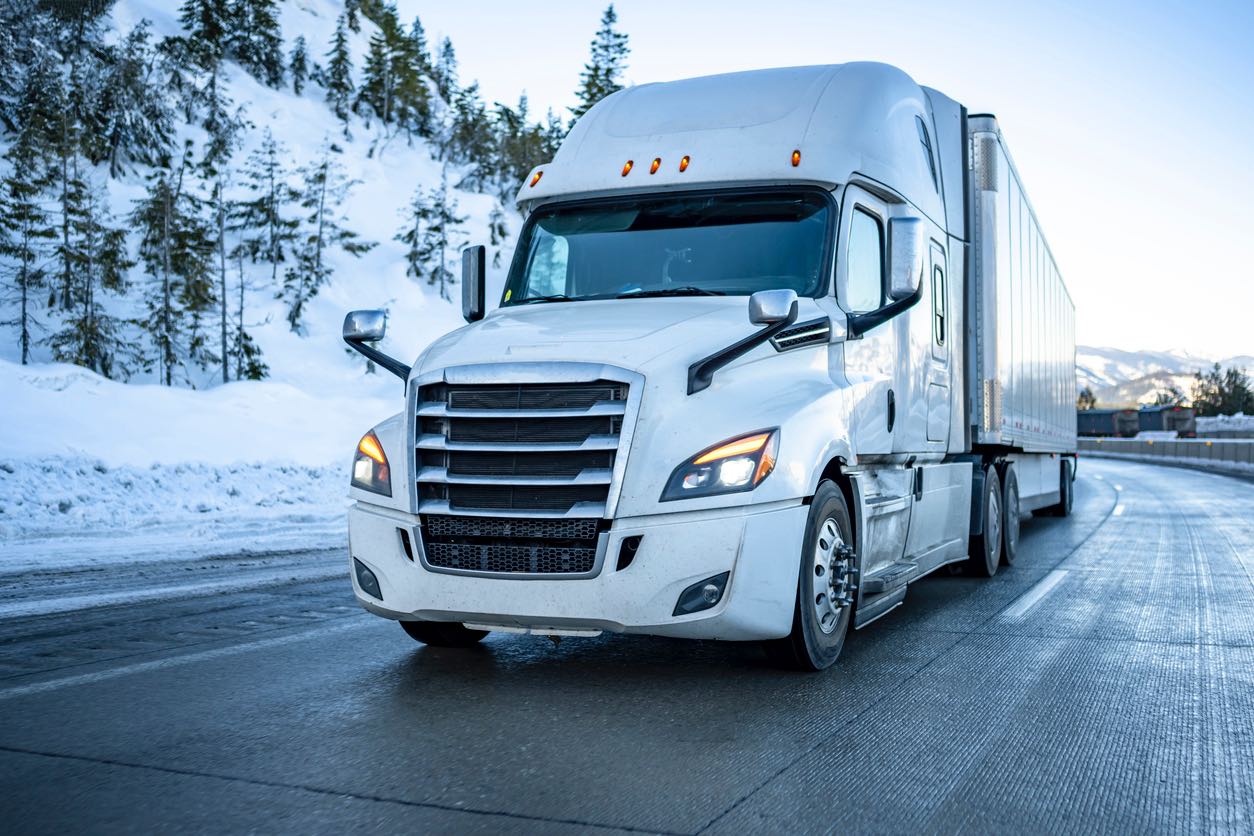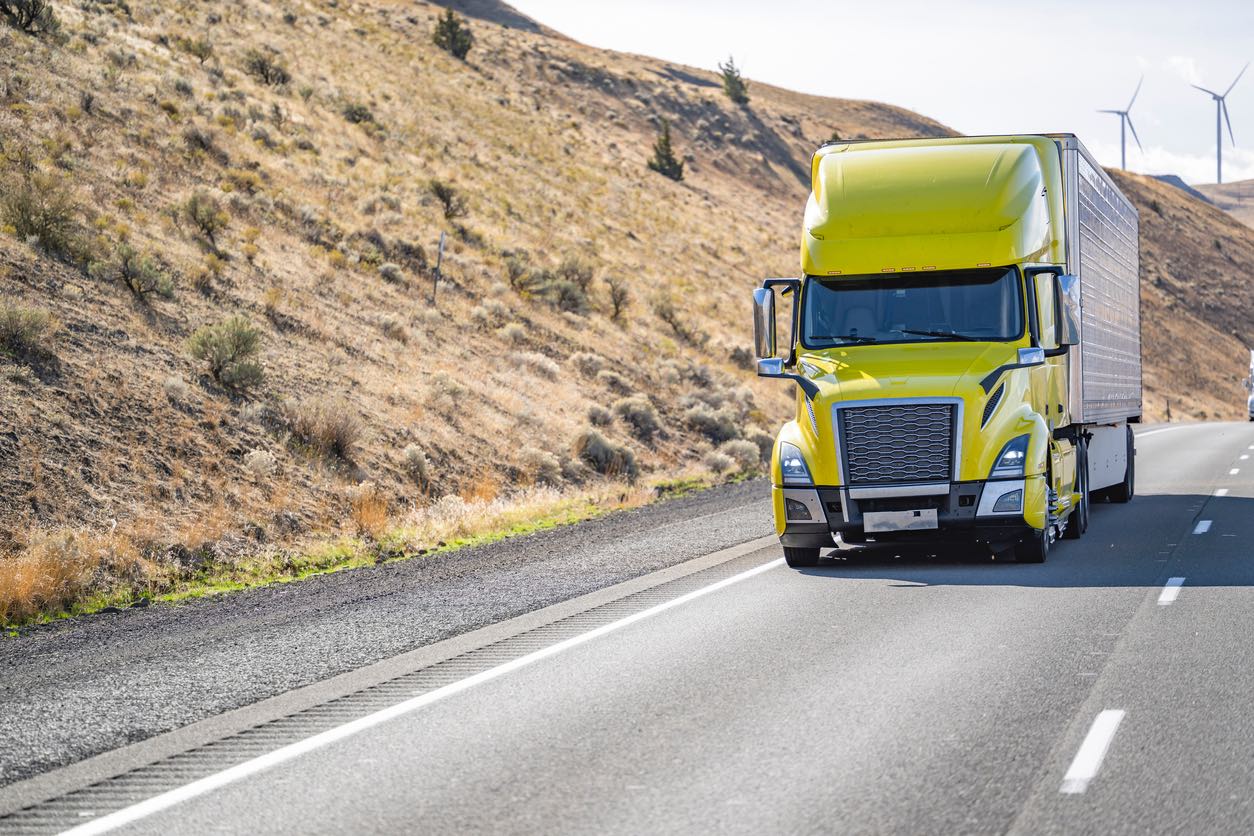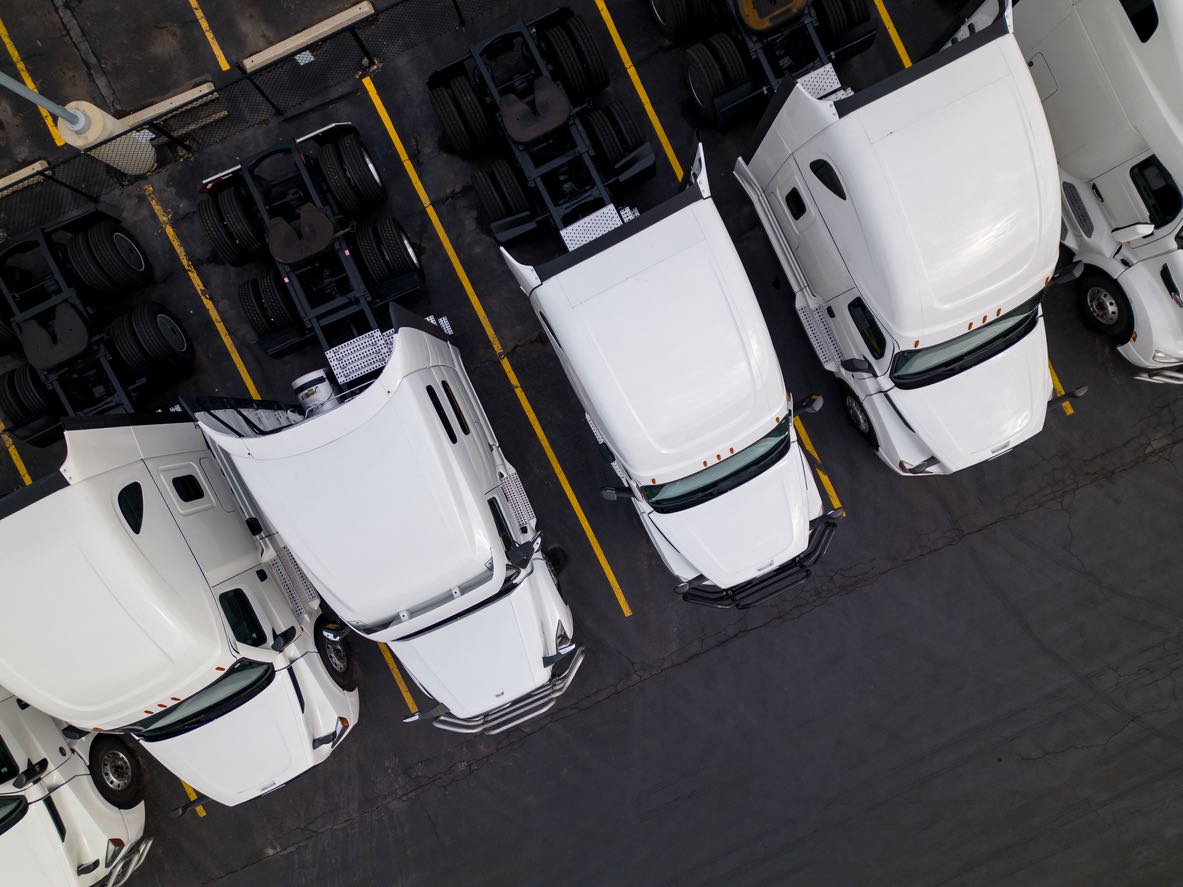Introducing its ambitious intentions to supply hydrogen fuel cells for Autocar’s heavy-duty vehicles, General Motors (GM) is making a ground-breaking step that might completely change the commercial transportation industry. This calculated risk is a strong declaration in the automobile sector that responds to the worldwide need for ecologically friendly solutions, not merely a nod to innovation. It denotes a dramatic departure from the use of conventional fuels and points the way toward a day when commercial cars with zero emissions will be the rule rather than the exception. This examination will reveal how GM’s program is redefining the heavy-duty truck market with an environmentally conscious outlook by presenting hydrogen fuel cells as a strong substitute for the current powertrains.
The move taken by GM is a reaction to the pressing need for cleaner and more effective transportation options in light of growing environmental concerns; it goes well beyond simple technological improvement. Leading this change are hydrogen fuel cells, which provide a special combination of high efficiency and low carbon impact. Not only is GM embracing change, but it is leading it with its decision to concentrate on the heavy-duty truck market, a sector recognized for having a major environmental effect. We’ll examine the complexities of hydrogen fuel cell technology and how it may completely alter our perceptions of sustainability, transportation, and the trucking industry’s future as we dig deeper into this discovery. GM is not only altering the rules with this effort, but it is also establishing a new benchmark for what the trucking industry may look like in the future.

In the fight for zero-emission vehicles, hydrogen fuel cells are showing to be a potent and long-term option. These cells cleverly transform hydrogen and oxygen into energy, unlike their battery-powered competitors, enabling electric motors to run while just releasing water vapor. This technical marvel represents a major advancement in automobile innovation and is a perfect example of renewable energy. We’ll go further into the fundamental ideas of hydrogen fuel cells in this part, explaining how they operate and why they’re revolutionizing environmental preservation. We’ll also discuss how important it is for them to lead the automobile sector toward an electric, greener future, emphasizing how they have the power to completely transform our skies and roadways. We are at the brink of a new age in transportation, one in which ecological responsibility and efficiency coexist, thanks to our embrace of this cutting-edge technology.
Hydrogen technology has obstacles despite its promise, chief among them being its cost and infrastructural needs. We’ll look at why hydrogen fuel cells are still seen to be potential for use in commercial settings, even though they are more costly and require specialized filling facilities. One significant benefit is that, in comparison to batteries, they have a higher energy density, enabling longer ranges and heavier loads—important for the transportation industry. Moreover, hydrogen fuel cells have faster refilling times than batteries, which is a big advantage, particularly for cars that are used constantly. This technology is in line with global efforts to lessen carbon footprints and fight climate change because of its environmentally favorable profile and ability to produce only water vapor. Furthermore, costs are anticipated to drop as the hydrogen infrastructure grows with more stations and higher output, making this technology both environmentally friendly and commercially feasible for use in transportation in the future.

Battery-electric solutions provide unique issues for heavy-duty vehicle operations, such as those involving Autocar’s vocational trucks. These trucks frequently need to run for prolonged periods of time and be able to travel great distances without stopping frequently to refuel. Hydrogen fuel cells provide a workable answer to this problem because of their noticeably shorter refueling durations as compared to the protracted charging times of electric batteries. Additionally, they have a far longer range, which makes these vehicles capable of covering larger distances—a critical component for businesses that depend on efficient transportation. Maintaining the steady, high-demand cycle of heavy-duty trucks requires this capacity. Additionally, the use of hydrogen fuel cells in commercial transportation improves operational effectiveness and conforms to the expanding environmental requirements that lower carbon emissions. As a result, hydrogen fuel cells present themselves as both a practical substitute and an essential advancement for the heavy-duty trucking industry, offering a more efficient and sustainable mode of transportation in the future.
GM’s strategic choice to deliver hydrogen fuel cells for Autocar’s heavy-duty vehicles marks a big step towards a sustainable future in an industry where innovation is the key to leadership. This project, which is scheduled to start production in 2026 at Autocar’s cutting-edge Alabama factory, not only establishes GM as a progressive company but also draws attention to the expanding trend of environmentally friendly transportation options. Adoption of GM’s cutting-edge hydrogen fuel cell technology, especially for big, energy-intensive trucks, has the potential to completely transform the heavy-duty trucking sector by offering a more efficient and greener alternative to conventional power sources. This audacious step by General Motors (GM) not only demonstrates their dedication to innovation, but it also extends an invitation to readers and industry stakeholders to join them on this revolutionary trip, which represents a turning point in the development of heavy-duty transportation.

The introduction of General Motors’ HYDROTEC technology is a major turning point for the sustainable transportation industry. Over 300 hydrogen fuel cells are housed in each of GM’s HYDROTEC power cubes, which are a marvel of contemporary engineering. Together, these cells produce a powerful output that redefines the industry standard. This energy-efficient technology is specially designed for applications where energy consumption is highest, such as heavy-duty freight transportation, aircraft, and locomotives. We’ll go into further detail on how this innovative technology not only transforms our understanding of commercial transportation but also opens the door to a more efficient and clean future. Because of its scalability and versatility, the HYDROTEC system is a great fit for a variety of industries, demonstrating GM’s dedication to sustainability and innovation. We can gain a better understanding of this technology’s potential to lower carbon emissions and influence the way heavy industries utilize energy in the future by delving into its complexities.
The trucking industry’s shift to cleaner technology is influenced by the quickly changing regulatory and environmental situation. This section explores the Environmental Protection Agency’s (EPA) groundbreaking Clean Trucks Plan, which played a key role in moving the market toward more environmentally friendly practices. Manufacturers and fleet operators are being aggressively pushed to examine alternatives like hydrogen fuel cells, which provide a cleaner footprint without sacrificing performance, by these new requirements. Furthermore, these regulation changes are become stricter due to the Biden administration’s emphasis on lowering carbon emissions, which is fostering innovation in zero-emission automotive technology. Targeting heavy-duty vehicles, which are a significant source of emissions associated with transportation, directly, the strategy may hasten the adoption of hydrogen fuel cell technology. This action marks a turning point for the trucking sector since it will necessitate a significant shift away from traditional diesel engines and toward cleaner options in order to comply with these regulations. As a result, it is anticipated that this changing regulatory environment will generate a great deal of interest in and funding for hydrogen fuel cell technology, putting it in the lead position in the push for commercial transportation to become carbon neutral.

The pricing dynamics and future financial forecasts of hydrogen fuel cell technology are critical to understanding its path towards widespread adoption in heavy-duty trucks. One of the biggest obstacles at the moment is the high initial cost of hydrogen fuel cells. The primary causes of this cost barrier are the costly production procedures and the early stages of the development of hydrogen infrastructure. Still, a revolution in the sector is about to occur. Costs are predicted to drop significantly as a result of greater public and private sector investment in hydrogen infrastructure as well as improvements in manufacturing efficiency. Experts estimate that the cost of hydrogen-powered vehicles will catch up to that of diesel trucks by 2035. The forecast is based on current trends in technical innovation and economies of scale, not merely conjecture. The use of hydrogen fuel cell technology in commercial transportation is anticipated to increase as it becomes more reasonably priced. It offers a profitable and environmentally friendly substitute for conventional fuel sources. This change in the hydrogen technology financial landscape has the potential to drastically alter the heavy-duty transportation sector and pave the way for a more economical and environmentally friendly future.
The choice made by Autocar to incorporate GM’s hydrogen fuel cell technology into its heavy-duty vehicles demonstrates their steadfast commitment to leading the way in the development of innovative and ecologically friendly transportation solutions. This calculated action demonstrates Autocar’s proactive approach to implementing technologies that have the potential to completely transform the heavy-duty trucking industry, while also placing the company in line with the most recent developments in alternative energy. Autocar is a pioneer in the shift towards cleaner and more efficient commercial vehicles, and they are not simply adjusting to the fast changing landscape, but creating it as well. Their dedication goes above and beyond meeting impending rules; they want to establish new benchmarks for zero-emission vehicle technology. Autocar is tackling serious environmental issues by concentrating on hydrogen fuel cells and offering workable, high-performing solutions that satisfy the rigorous requirements of contemporary transportation operations. This progressive strategy exemplifies Autocar’s vision of a greener future in which the commercial vehicle sector advances through innovation and ecological responsibility.

We’ve come to the end of our research into GM’s ground-breaking hydrogen fuel cell program for heavy-duty trucks, and it’s evident that the transportation sector is about to undergo a dramatic change. This revolutionary journey, spearheaded by General Motors’ creative thinking, is about more than just embracing new technology—it’s about reimagining what the future of transportation may be. It is impossible to overestimate how revolutionary hydrogen fuel cells may be in this industry. They solve some of the most important environmental issues of the day by providing a robust, efficient, and sustainable substitute for conventional diesel engines. Hydrogen fuel cells are expected to be essential in reaching the objective of more environmentally friendly transportation since they substantially reduce pollutants and offer a cleaner energy source.
Furthermore, GM is playing a bigger part in this shift than merely providing cutting-edge technologies. GM’s decision to partner with Autocar and enter the heavy-duty trucking industry positions the company as a frontrunner in the push for environmentally responsible commercial transportation. This is a strategically important step from an economic and environmental standpoint. The desire for sustainable solutions and tighter restrictions will likely result in a considerable expansion of the market for hydrogen-fueled cars. GM is leading this emerging market because to its early embrace and development of hydrogen technology. Their dedication to innovation highlights the importance and practicality of switching to cleaner energy sources, acting as a beacon for others in the industry. This is an exciting moment for the business and onlookers alike, as the path ahead for hydrogen-powered trucks is loaded with potential for development, sustainability, and a cleaner future.

Ship A Car, Inc. (SAC) is the industry leader in dependable and effective freight and vehicle transport. Its stellar reputation is supported by five-star customer ratings and an A+ rating from the Better Business Bureau (BBB). This prestigious reputation is the result of SAC’s continuous dedication to offering first-rate service, guaranteeing that every shipment—whether it be a small automobile or large freight—is handled with the highest care and expertise. Beyond only cars, SAC offers a broad variety of freight solutions, meeting a variety of transportation requirements with accuracy and convenience. SAC’s distinctive selling point is its customized customer service strategy, which provides solutions that are specifically designed to meet the needs of each individual client. Do not hesitate to contact (866) 821-4555 to receive your free shipping price and to enjoy the exceptional service for which SAC is renowned. Remember that Ship A Car, Inc. is prepared to handle all of your shipping needs with perfection, whether they include your prized automobile or important freight. They are equipped to carry more than just cars.
Q: What characteristics, if any, make hydrogen fuel cells an attractive option for heavy-duty trucks?
A: Because hydrogen fuel cells have a considerable energy capacity and can be refueled in a short amount of time, they are an excellent choice for heavy-duty applications that require lengthy durations of operation.
Q: What makes the HYDROTEC technology developed by GM stand out?
A: The HYDROTEC technology developed by General Motors is intended for use in vehicles with significant energy consumption. It offers a substantial energy capacity as well as the ability to start cold, and it is suited for a variety of industries.
Q: When it comes to the transportation of freight and vehicles, why is Ship A Car, Inc. the company of choice?
A: Ship A Car, Inc. is well-known for providing great customer service, being dependable, and adhering to industry standards. This is demonstrated by the company’s top-tier evaluations and its Best Business Bureau rating.




